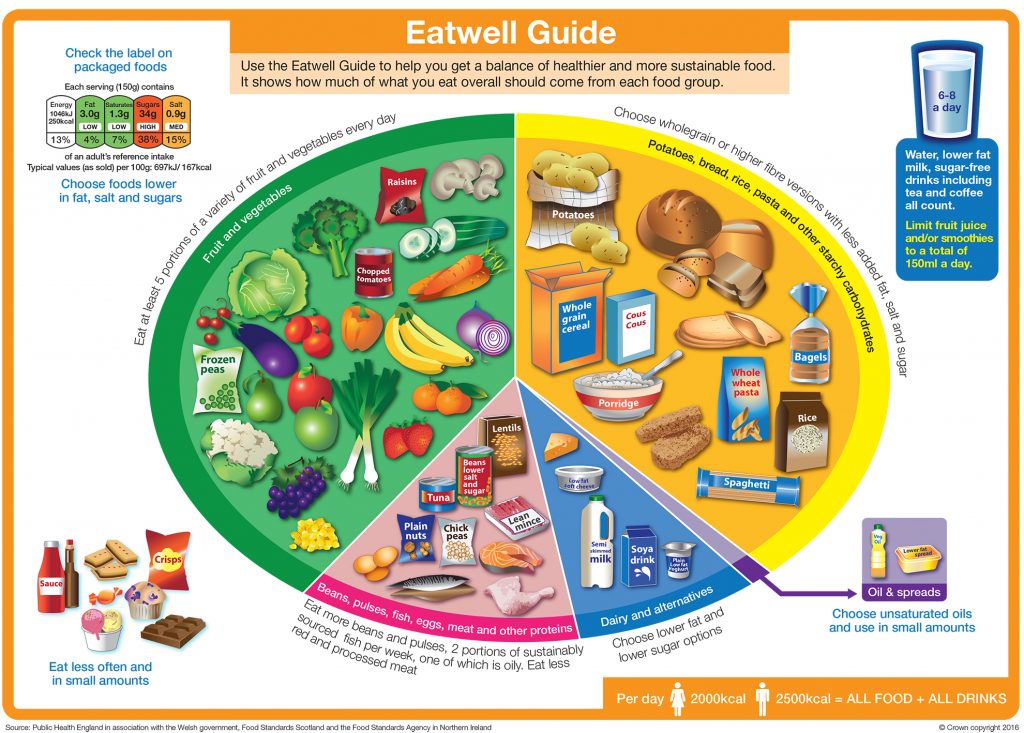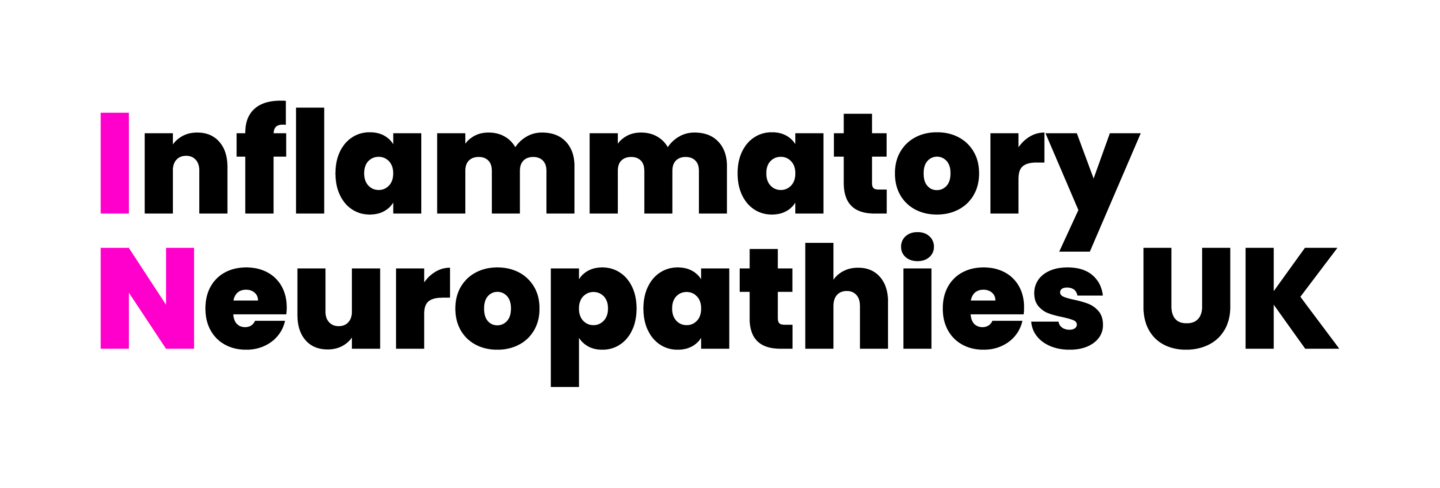Eat your way to a healthier you
We are often asked about diet during recovery from Guillain-Barré syndrome or living with chronic conditions such as CIDP.
(Trigger Warning: while this article doesn’t focus primarily on diets and calories, these are referenced)
A great place to start learning about what to eat is through the NHS Eatwell Guide. It shows how much of what we eat should come from each food group to achieve a healthy, balanced diet. Importantly, it applies to most of us regardless of dietary preferences, weights, ages, and ethnic origins. Please note, if you’re someone with special dietary requirements or medical needs, you may wish to chat with a registered dietitian to ensure the guide fits your needs.
Two things to keep in mind though. Don’t let perfect be the enemy of good. We know recovering from GBS or living with a chronic condition can bring mental challenges along with physical symptoms. While we encourage you to cut down on sugar and eat your five fruits and vegetables a day, remember to allow a treat here and there. Don’t beat yourself up if you don’t get the nutritional balance right with every meal, just try and balance it out through the week.
And don’t be afraid or embarrassed to ask for help. The cost of living has impacted all of us, and for those living with conditions that can impact their ability to work, this can cause significant strain. Citizens Advice have produced some helpful pages that cover accessing foodbanks, crisis grants and benefits, and more. Click the link closest to your region to learn more.
The EatWell Guide

You can access the full guide here: https://www.nhs.uk/live-well/eat-well/food-guidelines-and-food-labels/the-eatwell-guide/ but in summary:
- Try to eat your 5 fruits and vegetables a day but remember fruit juice should be limited to 150ml (about 5.07 oz) a day to avoid too much sugar.
- Sugar is not needed in our diet, so should be eaten less often and in smaller amounts. A sweet treat is still allowed though!
- Remember to drink 6-8 glasses of fluid a day. Water, low-fat milks, low-sugar/sugar free drinks, along with tea and coffee all count.
- Starchy, fibrous food should make up over a third of what we eat – think high fibre or wholegrain varieties of pasta and bread.
- Add protein to your diet through fish (aim at least two portions of fish a week, one of which being an oily fish such as salmon, sardines or mackerel – you’ll get a lot of Omega 3 from these which helps reduce inflammation) or lean cuts of meat and mince while cutting down on red and processed meat. Don’t eat meat? No problem, think pules such as beans, peas, and lentils. They’re low in fat and help your fibre goals.
- Another great source of protein is dairy, or dairy alternatives such as soya. Milk, cheese, yogurt and fromage frais provide protein and are a strong source of calcium.
- Cook with vegetable, rapeseed, olive, and sunflower oils, these are unsaturated fats and therefore healthier. Though they should still be eaten in small amounts as they are high in energy (calories).
- Speaking of calories, women should have around 2,000 calories a day, and men should have around 2,500. However, this varies from person to person and can depend on how active you are. Apps like MyFitnessPal can help you track calories through the day and can serve as a food diary. When you’re not feeling great, you may find yourself more sensitive to certain foods. Being able to identify what does not agree with you through a diary may be beneficial for you.
Eating Matters, Tips for Staying Well
Our friends at the GBS-CIDP Foundation run a Speaker Series, and they recently hosted a seminar called “Eating Matters, Tips for Staying Well” which you may find useful.
This video covers an incredibly wide range of subjects including nutrition, gut health (which impacts our immune systems, a key area in GBS), sleep, stress, blood sugar, meal prepping, proteins, fibres, sodium, and portion sizes, lifestyle tips, inflammation, supplements, what can help cell and nerve health, soft foods to help with dysphagia, vagus nerve health, digestion and exercise advice.
The thirty-minute video features many audience questions which may apply to you, so we have time stamped these below for you.
- 6:00 “I’m trying to keep myself healthy while on immune suppressants, is there such a thing as nutrition to help you keep you from getting sick?”
- 11:00 “I’m on steroids and trying to avoid weight gain and uncomfortable symptoms, are there diet changes I can make to help?”
- 13:17 “What diet changes or supplements can I add to help with inflammation?”
- 18:30 “Is a diet for nerve health even a thing?”
- 19:30 “How to maintain a healthy diet while dealing with Dysphagia (difficulty swallowing)”
- 22:53 “I want to gain healthy weight and muscle to help improve my condition, do you have any tips?”
- 25:55 “Developing CIDP has put me on a whole heath journey so really looking to change my life, overhaul everything, where can I start when it comes to nutrition?”

